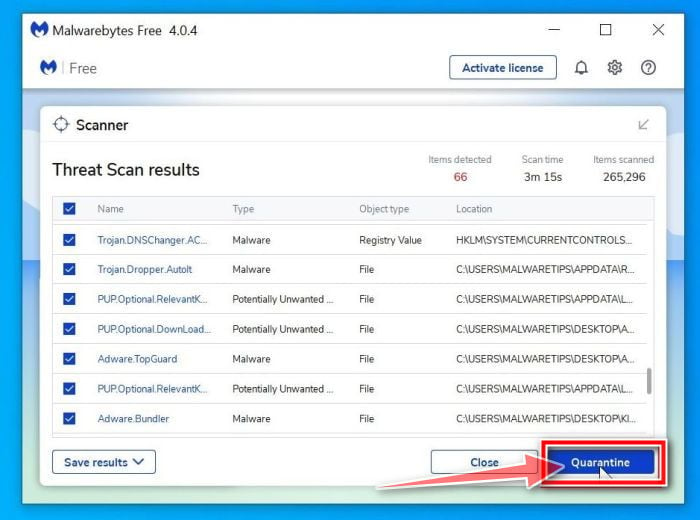
/PUPs-9ab918e6f909491f845c68e9712ea29e.jpg)
- Should i remove potentially unwanted programs install#
- Should i remove potentially unwanted programs software#
- Should i remove potentially unwanted programs free#

In February 2015, the United States Department of Homeland Security advised uninstalling Superfish and its associated root certificate from Lenovo computers, because they make computers vulnerable to serious cyberattacks, including interception of passwords and sensitive data being transmitted through browsers. Superfish is an advertising injector that creates its own root certificate in a computer operating system, allowing the tool to inject advertising into encrypted Google search pages and track the history of a user's search queries.
Should i remove potentially unwanted programs install#
Spyware programs install a proxy server on a person's computer that monitors all web traffic passing through it, tracking user interests to build up a profile and sell that profile to advertisers. Some Google Chrome extension developers have sold extensions they made to third-party companies who silently push unwanted updates that incorporate previously non-existent adware into the extensions. Thirty-eight percent of extensions and 17 percent of programs were catalogued as malicious software, the rest being potentially unwanted adware-type applications. Researchers have identified 50,870 Google Chrome extensions and 34,407 programs that inject ads. Five percent of computer browser visits to Google-owned websites are altered by computer programs that inject their own ads into pages. Many programs include unwanted browser add-ons that track which websites a user goes to in order to sell this information to advertisers, or add advertising into web pages.

This malware includes adware according to Google. Unwanted programs have increased in recent years, and one study in 2014 classified unwanted programs as comprising 24.77% of total malware infections.
Should i remove potentially unwanted programs software#
These companies are responsible for a large part of the download and install tools, which place unwanted, additional software on users' systems. Download Valley Ī major industry, dedicated to creating revenue by foisting potentially unwanted programs, has grown among the Israeli software industry and is frequently referred to as Download Valley. These activities declined after the companies were investigated, and in some cases indicted, by authorities for invasive and harmful installs. Historically, the first big companies working with potentially unwanted programs for creating revenue came up in the US in the mid-2000s, such as Zango. Software developers and security experts recommend that people always download the latest version from the official project website, or a trusted package manager or app store. The United States Department of Homeland Security has advised removing an insecure root certificate, because they make computers vulnerable to serious cyberattacks. Some unwanted software bundles install a root certificate on a user's device, which allows hackers to intercept private data such as banking details, without a browser giving security warnings. The practice is widely considered unethical because it violates the security interests of users without their informed consent.
Should i remove potentially unwanted programs free#
Nearly every third-party free download site bundles their downloads with potentially unwanted software. A growing number of open-source software projects have expressed dismay at third-party websites wrapping their downloads with unwanted bundles, without the project's knowledge or consent.

Antivirus companies define the software bundled as potentially unwanted programs which can include software that displays intrusive advertising (adware), or tracks the user's Internet usage to sell information to advertisers ( spyware), injects its own advertising into web pages that a user looks at, or uses premium SMS services to rack up charges for the user. Companies often bundle a wanted program download with a wrapper application and may offer to install an unwanted application, and in some cases without providing a clear opt-out method. Such software may use an implementation that can compromise privacy or weaken the computer's security. It is used as a subjective tagging criterion by security and parental control products. Computer software which can be perceived as unwanted and/or harmfulĪ potentially unwanted program ( PUP) or potentially unwanted application ( PUA) is software that a user may perceive as unwanted or unnecessary.


 0 kommentar(er)
0 kommentar(er)
